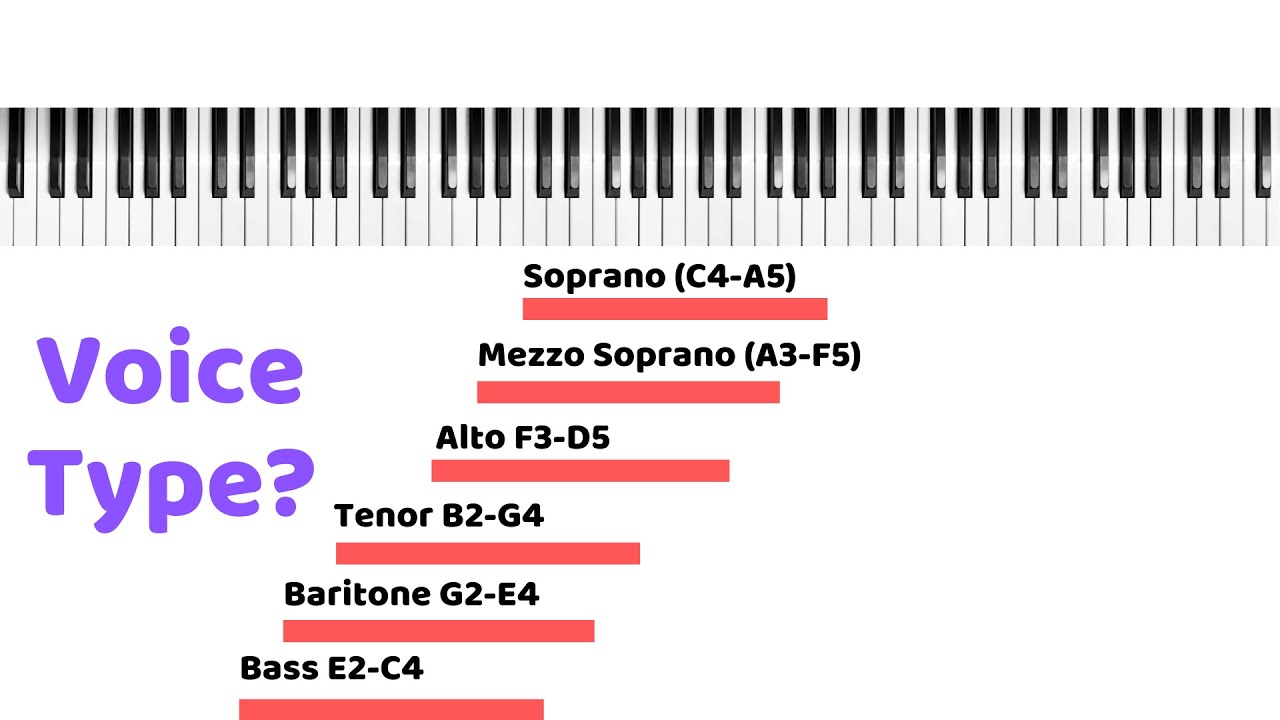 Explaining the concept of voice types and their significance in singing or public speaking.
Explaining the concept of voice types and their significance in singing or public speaking.
The human voice is a remarkable instrument, capable of conveying a wide range of emotions and messages. From the captivating melodies of a singer to the persuasive speeches of a powerful orator, the voice has the power to captivate and move audiences. But have you ever wondered why some voices sound drastically different from others? Why do some people effortlessly hit high notes while others possess deep and resonant tones? The answer lies in the concept of voice types, which categorize voices based on their unique qualities and characteristics. Understanding voice types not only helps individuals develop their singing or public speaking skills but also enables them to make informed choices when it comes to choosing suitable repertoire or voice training.
Voice types are primarily classified into four main categories: soprano, alto, tenor, and bass. Each category represents a distinct range and quality of voice. Sopranos typically have higher-pitched voices, capable of reaching soaring notes with clarity and precision. They often take on lead roles in musical theater productions and opera. Altos, on the other hand, possess a slightly lower range than sopranos, with a richer and warmer tone. Their voices add depth and harmony to choral groups and ensembles.
Moving on to the male voice types, tenors are known for their ability to hit high notes with ease. Their voices are often associated with passion, agility, and a certain level of emotional intensity. In contrast, basses possess deep and resonant voices that add a powerful foundation to musical compositions. Their low tones are often utilized to create a sense of authority and strength.
Understanding your voice type is crucial as it allows you to choose repertoire that suits your vocal range and capabilities. Singers can maximize their potential by selecting songs that showcase their strengths and minimize the risk of vocal strain or damage. Moreover, knowing your voice type helps in locating appropriate voice coaches or teachers who specialize in training specific ranges. These professionals can guide singers in developing proper vocal techniques, expanding their range, and enhancing their overall performance.
The concept of voice types extends beyond the realm of singing into public speaking as well. Whether delivering a persuasive speech, giving a presentation at work, or even engaging in everyday conversations, understanding your voice type can enhance your communication skills. By recognizing your natural vocal range and quality, you can modulate your voice to effectively convey your message and establish a strong presence. Whether you possess a commanding bass or a charismatic soprano, harnessing the power of your voice type can make a significant impact on your ability to connect with others and leave a lasting impression.
In conclusion, voice types play a vital role in both singing and public speaking. They provide a framework for understanding the unique qualities and characteristics of individual voices. By identifying and embracing your voice type, you can make informed choices regarding repertoire selection, seek appropriate training, and optimize your vocal performance. So, whether you aspire to be a renowned singer or a persuasive public speaker, unlocking the potential of your voice type is the key to success.
When it comes to singing, understanding the different types of voices can greatly enhance your appreciation for music. Whether you’re a singer yourself or simply an avid listener, knowing the various voice types allows you to identify and appreciate the unique qualities each one brings to a performance. From soaring sopranos to resonant basses, let’s delve into the main voice types and explore their typical characteristics.
One of the most well-known voice types is the soprano. Sopranos are known for their ability to hit high notes with clarity and precision. Their voices possess a bright and vibrant quality, capable of cutting through a large ensemble. Sopranos often take on lead roles in operas and musicals, captivating audiences with their powerful vocal range and emotional delivery. From innocent and angelic to fierce and commanding, sopranos have the versatility to portray a wide range of characters.
On the other end of the spectrum, we have basses. Bass voices are characterized by their deep, rich, and resonant tones. These singers possess the ability to hit the lower notes with ease and have a commanding presence on stage. Often cast as authoritative figures or villains, basses bring a sense of gravitas to their performances. Their low register adds depth and richness to choral arrangements and provides a solid foundation for harmonies.
In between sopranos and basses, we have two other voice types: altos and tenors. Altos typically have a warm and velvety tone, sitting comfortably in the middle range. They often provide support and harmony to the higher voices, adding depth and richness to choral pieces. Tenors, on the other hand, possess a versatile vocal range, capable of reaching both high and low notes. They often take on romantic leads in musicals and are praised for their ability to convey emotion through their singing.
Each voice type brings its own unique qualities and contributes to the overall beauty of a musical composition. It’s important to note that voices, like individuals, are varied and can exhibit different qualities within the same voice type. Some sopranos may have a lighter, more delicate timbre, while others may have a more dramatic and powerful sound. Similarly, basses can range from a resonant and rumbling voice to a more lyrical and melodic one. These variations add depth and diversity to the world of vocal music.
In conclusion, understanding the different voice types is crucial for any music enthusiast. Whether you’re attending a live performance or listening to recordings, recognizing and appreciating the distinct qualities of each voice type enhances your musical experience. From the soaring soprano to the resonant bass, each voice type has its own charm and character. So next time you find yourself captivated by a vocalist, take a moment to identify their voice type and appreciate the unique talents they bring to the stage.
Determining your Voice Type: A Guide to Unlock Your Unique Sound
Your voice is as unique as your fingerprint. It is a powerful instrument that allows you to express yourself through words and emotions. But have you ever wondered what your voice type is? Understanding your voice type can help you make informed choices when it comes to singing or speaking, and it can also lead to a better understanding of your own vocal capabilities. In this article, we will provide you with some guidelines and tips on how to determine your voice type.
One of the key factors in determining your voice type is your vocal range. Vocal range refers to the span of notes that you can comfortably sing. To determine your vocal range, start by finding the lowest note you can sing comfortably and then the highest note. Keep in mind that your range might extend beyond these limits, but these notes will give you a good starting point. Once you have identified your range, you can categorize your voice into one of the main voice types: soprano, mezzo-soprano, alto, tenor, baritone, or bass.
Another factor to consider is timbre, which refers to the quality and color of your voice. Timbre is what makes each voice unique and distinct. Pay attention to the characteristics of your voice. Is it bright and clear, or is it rich and warm? Does it have a nasal quality or a breathy tone? Understanding your timbre can help you identify which voice type you might belong to.
Tessitura is yet another important aspect to consider. Tessitura refers to the range of notes where your voice feels most comfortable and resonant. While vocal range focuses on the extremes of your voice, tessitura focuses on the core range where your voice shines. For example, if you find yourself most comfortable singing in the middle range of your voice, you might belong to the baritone or mezzo-soprano voice type.
To further determine your voice type, it can be helpful to listen to different vocalists and identify whose voice is most similar to yours. Pay attention to the qualities of their voice, their range, and the types of songs they typically sing. This can give you a better understanding of where your voice might fit in terms of voice types.
Remember, determining your voice type is not about placing limitations on what you can or cannot do with your voice. It is simply a tool to help you understand and appreciate the unique qualities of your voice. Embrace your voice type and use it as a foundation to develop your singing or speaking skills further.
In conclusion, understanding your voice type is a valuable step in your vocal journey. By considering factors such as vocal range, timbre, and tessitura, you can gain a clearer understanding of your voice’s unique qualities. Embrace your voice type and use it as a guide to explore and expand your vocal capabilities. So go ahead, unlock the potential of your voice, and let it soar!
Training and developing your voice is essential for individuals looking to enhance their vocal abilities and pursue a career in singing or public speaking. This article aims to provide an overview of strategies and techniques that can help individuals improve their voice based on their specific voice type. By incorporating vocal exercises, proper breathing techniques, and seeking professional guidance, individuals can unlock their true vocal potential.
One crucial aspect of voice training is understanding your voice type. Every individual possesses a unique voice, characterized by factors such as pitch, range, timbre, and tone. Identifying your voice type is essential as it allows you to tailor your training approach accordingly. Professional vocal coaches or singing instructors can assist in evaluating your voice type and providing personalized guidance.
Once you have determined your voice type, incorporating vocal exercises into your training regimen can yield significant improvements. These exercises aim to strengthen vocal muscles, improve flexibility, and expand your vocal range. Warm-up exercises, such as lip trills, humming, and sirens, can help relax and prepare the vocal cords before singing or speaking. Additionally, practicing scales and arpeggios can improve pitch accuracy and control.
Proper breathing techniques play a crucial role in vocal development. Deep diaphragmatic breathing allows for better breath support, enabling individuals to sustain long phrases without strain. To practice this technique, inhale deeply through your nose, feeling your abdomen expand. As you exhale through slightly parted lips, focus on maintaining a steady flow of air, utilizing the support of your diaphragm. Regular practice of diaphragmatic breathing can enhance vocal projection and control.
Seeking professional guidance is highly recommended for individuals serious about improving their vocal abilities. A vocal coach or speech therapist can provide expert advice, pinpoint areas for improvement, and offer tailored exercises and techniques. They can also guide you in refining your diction, enunciation, and vocal expression. Working with a professional not only helps in honing your skills but also prevents the development of harmful vocal habits.
In addition to technical training, taking care of your vocal health is crucial. Hydration is key as it ensures that vocal cords remain lubricated and prevents vocal strain. Drinking plenty of water throughout the day can help maintain optimal vocal function. Avoiding excessive throat clearing, yelling, or speaking in noisy environments also protects the vocal cords from unnecessary stress.
In conclusion, training and developing your voice is a continuous process that requires dedication and guidance. By understanding your voice type, incorporating vocal exercises, practicing proper breathing techniques, and seeking professional assistance, you can unlock the full potential of your voice. Remember to prioritize vocal health and consistently work towards improving your skills. With time and effort, you will witness significant progress in your vocal abilities, allowing you to captivate audiences and express yourself with confidence.
Utilizing your voice type effectively: Exploring how knowing your voice type can enhance performance and communication skills, whether in singing, public speaking, or other forms of expression, and emphasizing the importance of embracing and utilizing one’s unique vocal qualities.
Our voice is a powerful tool that allows us to express ourselves in various forms. Whether we are singing, delivering a speech, or engaging in any other type of communication, understanding and utilizing our voice type effectively can significantly enhance our performance and communication skills. Each individual possesses a unique vocal quality, and by embracing and utilizing this uniqueness, we can unlock our full potential as vocalists and communicators.
When it comes to singing, knowing your voice type is crucial in order to choose the appropriate repertoire and sing in a way that maximizes your vocal abilities. Whether you have a soprano, alto, tenor, or bass voice, understanding your vocal range, pitch, and timbre can help you select songs that complement your voice and showcase its strengths. By embracing your voice type and working on techniques specific to it, you can improve your vocal control, projection, and overall singing performance.
However, the benefits of knowing your voice type extend beyond the realm of singing. Public speaking, for example, is an area where understanding your voice type can greatly enhance communication skills. Just as in singing, your voice type affects how you deliver your message, captivate your audience, and leave a lasting impact. By recognizing the unique qualities of your voice, you can adapt your speaking style to engage your listeners effectively and convey your ideas with confidence.
Moreover, embracing and utilizing your voice type can also help you excel in other forms of expression, such as acting or storytelling. Each voice type carries its own characteristics, which can add depth and authenticity to your performances. By embracing your vocal qualities, you can bring life to characters, evoke emotions, and connect with your audience on a more profound level. Your voice becomes an instrument through which you can convey the nuances and subtleties of your performance, leaving a lasting impression on those who experience it.
In conclusion, understanding and utilizing your voice type effectively is essential in enhancing your performance and communication skills. Whether in singing, public speaking, acting, or other forms of expression, embracing your unique vocal qualities can unlock your full potential as a performer and communicator. By recognizing the strengths and limitations of your voice, you can choose repertoire, develop techniques, and adapt your style to captivate your audience and convey your message with confidence. So, embrace your voice type, and let your unique vocal qualities shine through in all your endeavors.



